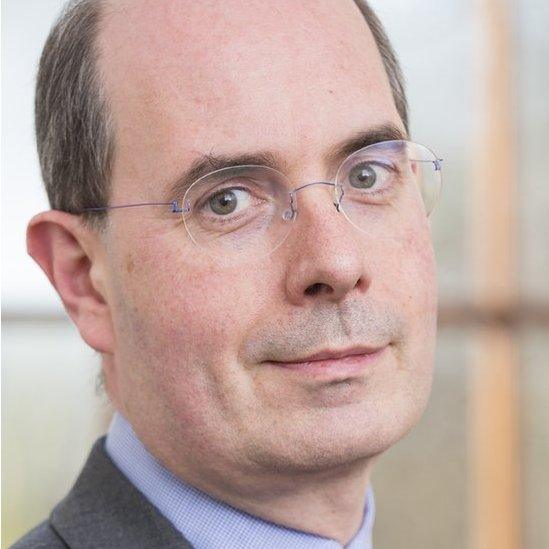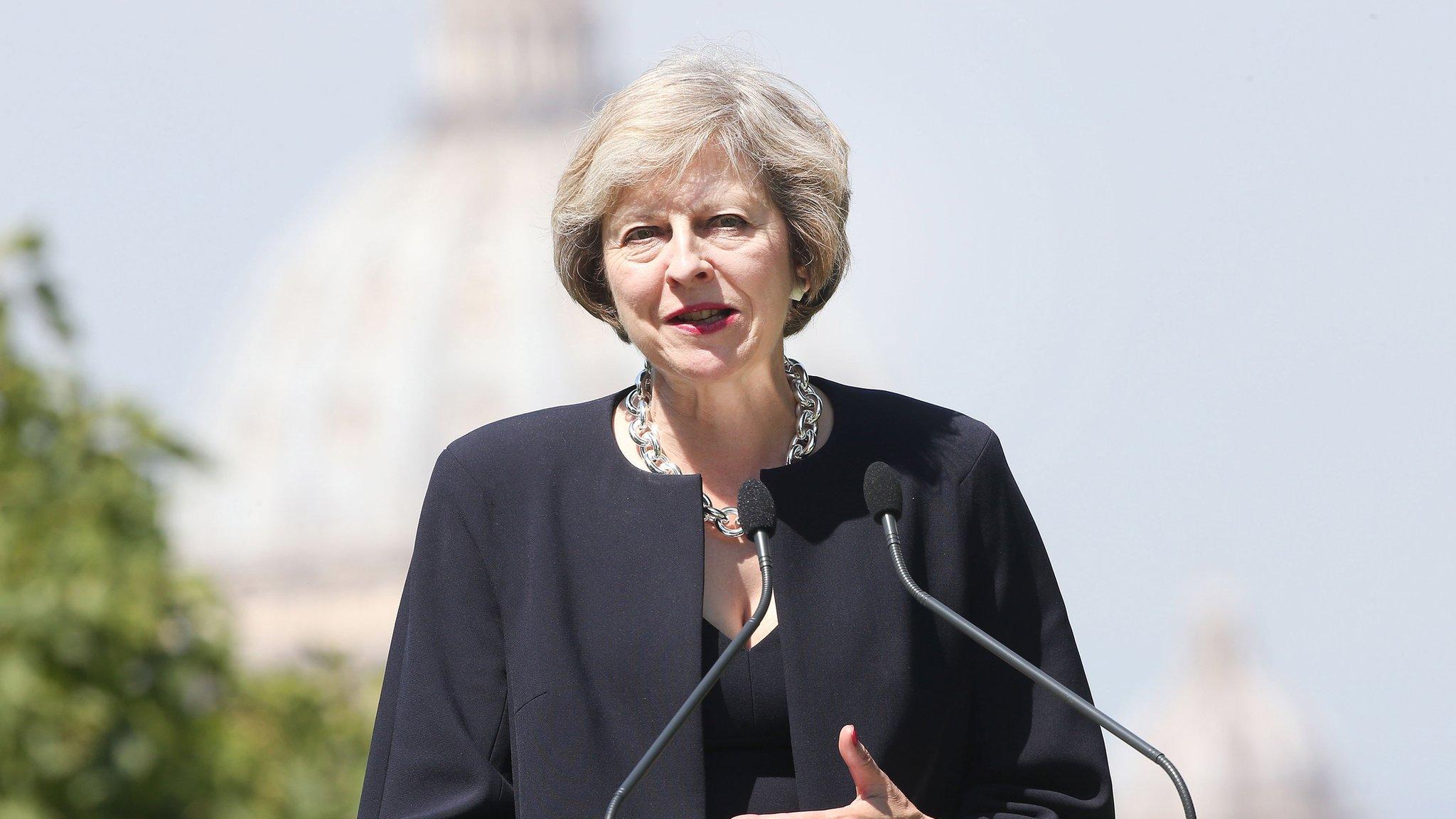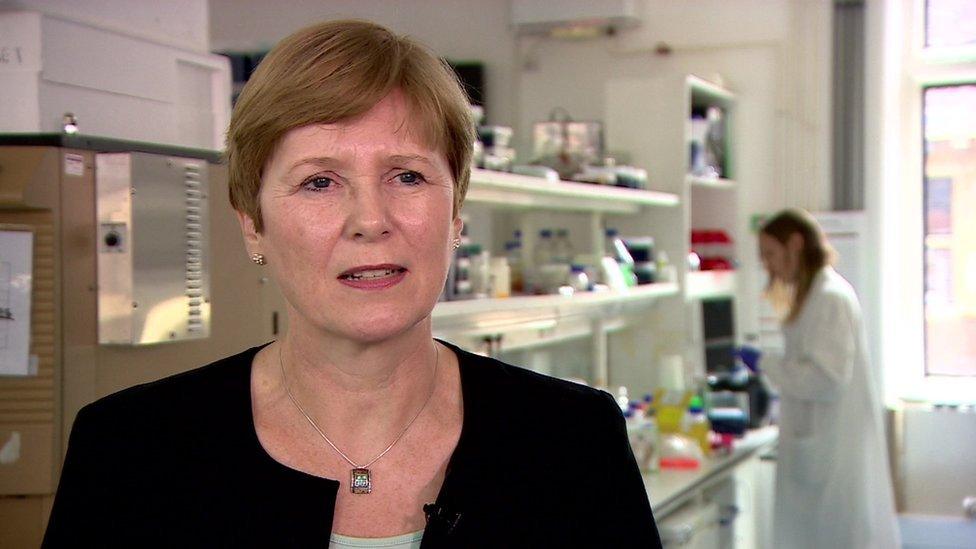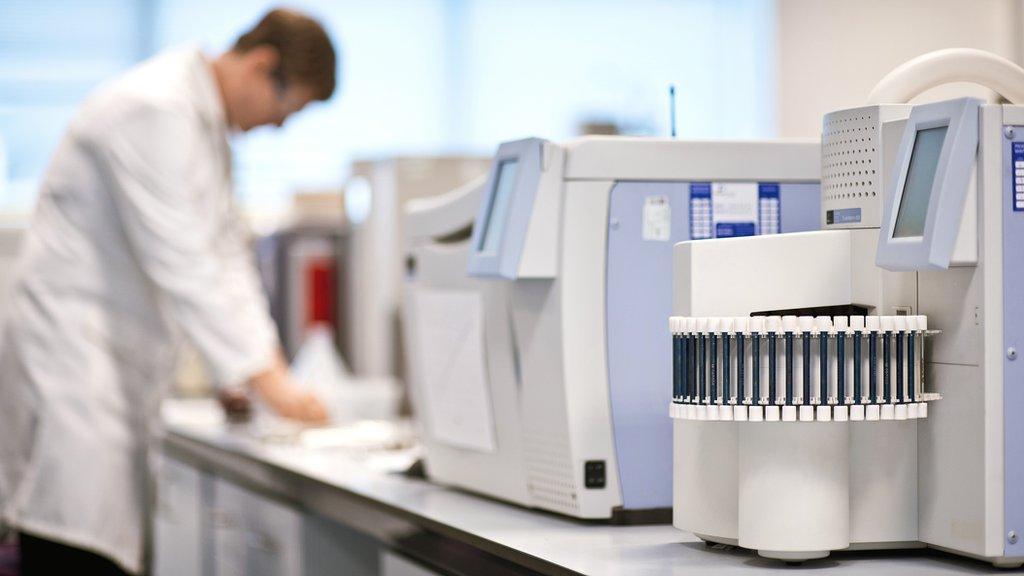Research head urges UK to seize Brexit opportunity
- Published

Sir John Kingman: Former Treasury Permanent Secretary now heads UK research
The man who has taken charge of UK research funding says Brexit presents scientists with an opportunity.
In his first interview in his new job, Sir John Kingman has told BBC News research could be at the heart of Britain's post-Brexit industrial strategy.
Sir John has recently taken over as chairman of the newly created UK Research and Innovation (UKRI) body.
The organisation oversees £6 billion of research funding annually.
Sir John's role will be to co-ordinate UK spending on research and encourage more interdisciplinary science. But his priorities shifted within weeks of his appointment when the UK voted to leave the EU.
The UK receives around £850m of research funding each year from the European Union.
British universities employ more than 30,000 scientists from EU countries. Leaders of research organisations are concerned that funds from European funding bodies could drop substantially and so lock British researchers out of important collaborations with scientists on the continent.
They also fear that restrictions on the free movement of labour would make it harder to attract the best researchers to UK labs.
BBC News has reported on how the uncertainty following the referendum result in June has already had an effect on funding, collaborations and staffing.
Sir John has told BBC News that he wants to make a virtue out of necessity.
"The critical point for me is that the new Prime Minister has quite rightly called for a new industrial strategy posing the question what is the best way to formulate a new economic future for an independent UK outside the European Union and I think that great science, great research universities have a huge amount to contribute to that," he told BBC News.
Hand in glove
Sir John is encouraged by the letter that Theresa May wrote to Nobel Prize winner, Sir Paul Nurse, within days of becoming Prime Minister. In it she stated that she attaches a "very high priority" to research.
"My priority is to make the case for the research community in the most persuasive way possible and I think there is a powerful story to tell about the relevance great science has for our economic future.
"I want UKRI to work hand in glove with government to ensure we do everything possible to ensure that as we formulate our relationship with the EU and the wider world and that we forge relationships which are consistent with everything we want to do in terms of having a stronger science base in the country and having a science base that contributes to economic success in this country."
Sir John's previous job was as acting Permanent Secretary at the Treasury. He was seen as a friend of science arguing the case for research during his time at the Exchequer.
Attracting such a notable and influential Whitehall insider to revamp the science funding system is seen as a coup, external by many in the research community.
UK research is funded by nine separate organisations. Each body specialises in specific fields. The system is regarded as one that works well and has contributed to Britain leading the world in many areas of science.
The government has recently set up UKRI and appointed Sir John to oversee and co-ordinate the work of the research organisations following a review of the research system by Sir Paul Nurse.
Megalith
Some working for the research organisations fear that the restructuring is a merger in all but name.
It would, they believe, lead to the loss of the close relationships between specialist funding bodies and research groups that has led to the effective funding that has nurtured world class research so effectively for so long.
Sir John dismisses the suggestion.
"I don't believe it is a merger in all but name and I am determined not to undermine any of the strengths of the existing institutions," he told BBC News.
"The role of UKRI is not to be an enormous megalithic funding body of scientific endeavour, rather it should be an intelligent shareholder in the nine funding bodies, one that has a perspective on priorities across the system, one that is capable of challenging the funding bodies on whether we are doing enough on interdisciplinary research or commercialisation."
He warned however that he would be a critical shareholder and would be assessing how well the research organisations were being led.
"One of the ways that UKRI should be judged is have we continued to strengthen the individual funding bodies?
"For example, do we succeed in attracting really outstanding people to come and lead those funding bodies?"
Deal with the devil?
Sir Paul Nurse's review also called for UKRI to forge a closer relationship with ministers.
The idea is that if government is more engaged with shaping research priorities the research community would receive more funding. But the worry is that ministers would start meddling and direct funds towards pet projects as George Osborne was accused of during his time as Chancellor.
Sir John said that his background as a senior civil servant at the Treasury would ensure that he would be savvy enough not to end up making a "deal with the devil" as Sir Paul himself cautioned against.
"UKRI will want to make sure that research happening in government departments is well co-ordinated with the relevant work of the research councils and also that government is thinking seriously about what its research needs actually are and there may be a discussion in individual areas about whether government departments are resourcing R&D sufficiently."
"Paul's report described how decisions in the past have been a little haphazard - I think UKRI can bring, I hope, a degree of transparency, a degree of rigour to some of those choices."
Follow Pallab on Twitter, external
- Published28 July 2016

- Published19 July 2016

- Published19 November 2015
